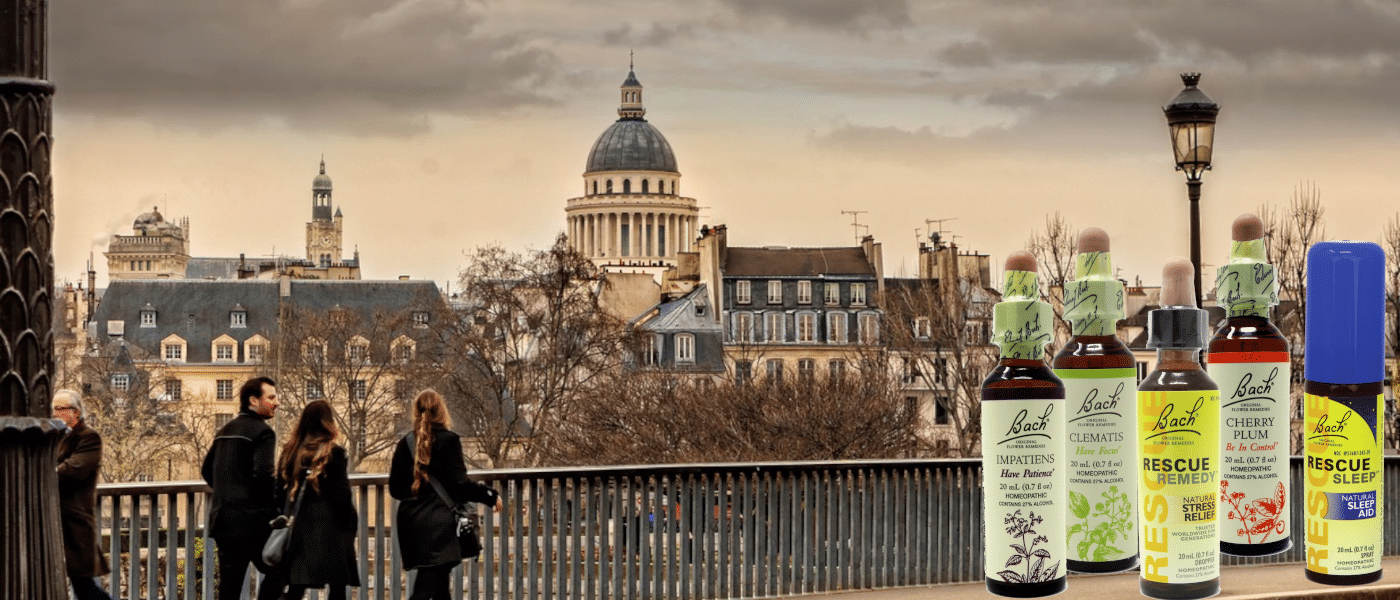
The Story of the Travelers by Dr. Edward Bach
Once upon a time; and it was always once upon a time, sixteen travelers set out to journey through a forest.
At first all went well, but after they had journeyed some distance one of the number, Agrimony, began to be worried as to whether they were on the right path. Later in the afternoon as they went deeper into the shadows, Mimulus began to be afraid, afraid that they had lost the road. When the sun set and the shadows deepened and the night-noises of the forest were heard around them, Rock Rose became full of terror and was in a state of panic. In the middle of the night when all was blackness, Gorse lost all hope and said, “I can go no further; you go along, but I shall stay here as I am until death relieves my sufferings”
Oak, on the other hand, though feeling all was lost and they would never again see the sunshine said, ” I shall struggle on to the very last,” and he did in a wild way.
Scleranthus had some hope but at times he suffered so from uncertainty and indecision, first wanting to take one road and almost at once another. Clematis plodded on quietly and patiently, but caring oh so little if he fell into the last sound sleep or whether he got out of the forest. Gentian at times much cheered the party, but at others fell into a state of despondency and depression.
Others of the travelers never feared but that they would get through and in their own way wanted so much to help their companions.
Heather was very sure he knew the path and wanted all the company to take his way. Chicory had no concern about the end of the journey but was full of solicitude as to whether his followers were footsore or tired or had enough to eat. Cerato had not much confidence in his judgment and wanted to take every path to be sure they were not wrong; and meek little centaury so wanted to lighten the burden that he was ready to carry everybody’s baggage. Unfortunately for little centaury, he generally carried the burden of those most able to carry their own because they called out the loudest.
Rock Water, all afire to help, a little depressed the party because he would criticize what they were doing wrong, and yet rock water knew the way. Vervain should also have known the path well enough, but although he had become a little confused, held forth at length as to the only way out of the wood. Impatiens, too, well knew the pathway home, so well that he was impatient with those less speedy than himself. Water Violet had travelled the way before and knew the right road and yet was a little proud and a little disdainful that others did not understand. Water Violet thought them a little inferior.
And in the end they all came through the forest.
Now they go as guides to other travelers who have not made the journey before, and, because they know there is a pathway through, and because they know the darkness of the forest is bust shadows of the night, they walk as “gentlemen unafraid,” and each of the sixteen sojourners teach in their own way the lesson, the example needed.
Agrimony strides along free of all care, and jests on everything. Mimulus can know no fear; Rock Rose in the darkest moments is a picture of calm serene courage. Gorse in the blackest night tells them of the progress they will make when the sun rises in the morning. Oak stands steadfast in the strongest gale; Scleranthus walks with perfect certainty; the eyes of clematis are fixed on the journey’s end, and no difficulties or set-backs can discourage Gentian.
Heather has learnt that each traveler must walk in his own way and quietly treads in front to show it can be done. Chicory, always wanting to lend a hand, but only when asked and then so quietly. Cerato knows so well the paths that lead to nowhere, and Centaury ever seeks the weakest who find their burden heavy.
Rock Water has forgotten to accuse, he just spends all the time encouraging. Vervain no longer preaches but silently points the way. Impatiens knows no hurry but lingers amongst their hindmost to keep their pace; and Water Violet, more like an angel than a man, passes among the company like a breath of warm wind or a ray of glorious sunshine, blessing everyone.
(This article was written by Dr. Bach in 1934 when only 16 of the 38 remedies had been discovered)



